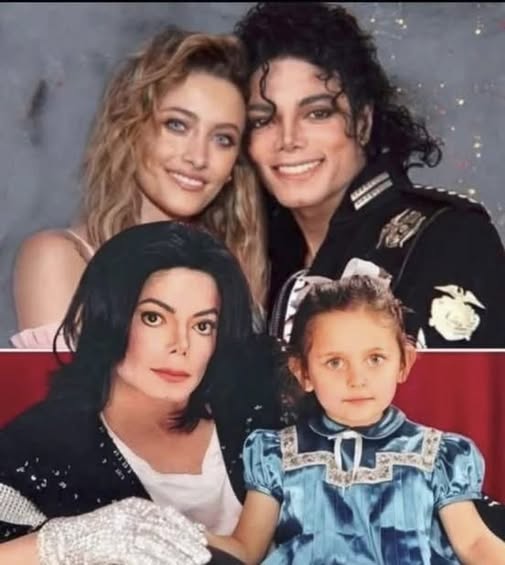When Paris Jackson was just eleven years old, she stood before the world at her father’s funeral and spoke words that would forever echo in the hearts of millions. “Ever since I was born, daddy has been the best father you could ever imagine. And I just wanted to say I love him so much.” The loss of Michael Jackson, the King of Pop, devastated fans across the globe, but for Paris and her brothers, the pain was deeply personal. Their lives changed overnight. Suddenly, they were not only children grieving their father but also the subjects of intense public scrutiny. Every tabloid, magazine, and paparazzo wanted a glimpse of Michael through his children. The same children he had fought so fiercely to shield from the glare of fame now found themselves thrust into the spotlight without his protection.
In the aftermath of Michael’s death, custody of Paris, Prince, and Blanket was granted to their grandmother, Katherine Jackson. Katherine tried her best to provide stability, but life was never the same. Paris spent her teen years under her grandmother’s roof, navigating the complexities of adolescence while carrying the weight of her father’s legacy. When she turned nineteen, she made a decision that reflected both her independence and her longing to remain close to Michael: she moved into her father’s private studio at the Jackson family compound. She converted the space into a bedroom that felt both like a sanctuary and a reminder of the man who had shaped her world.
Now in her twenties, Paris has stepped into her own identity as both a model and a musician. She turned twenty-three on April 3 and has begun to embrace the duality of being Michael Jackson’s daughter while also carving her own path. In a candid interview with Naomi Campbell for YouTube, Paris spoke openly about her upbringing, her career, and the ways her father’s influence continues to guide her. She described him not only as a global superstar but as a deeply devoted parent who made sure his children understood the world beyond luxury and fame. “My dad was really good about making sure we were cultured, making sure we were educated, and not just showing us like the glitz and glam, like hotel hopping, five-star places,” Paris explained. For Michael, life was about balance. Yes, his children saw fame, wealth, and grandeur, but they also saw humility, kindness, and the realities of the world outside their privileged bubble.
This grounding prepared Paris for a career in the spotlight on her own terms. She has found success in modeling, working with high-end brands and gracing magazine covers, but she has also pursued her passion for music. Her debut album, Wilted, is an indie-folk project filled with raw emotion, vulnerability, and hauntingly beautiful melodies. Speaking to Paper magazine, she described it as “mainly just a story of heartbreak and love, in general, and the thoughts and feelings that come after it doesn’t work out.” The album is deeply personal, yet listeners can feel echoes of her father’s influence. She may not have chosen pop or dance anthems, but she has inherited Michael’s talent for translating emotion into sound.
Paris has admitted that she draws inspiration from her father’s artistry, though she is careful to build her own identity rather than attempt to recreate his. Michael was larger than life, a once-in-a-generation performer, but he was also a man who believed in pushing creative boundaries. In that sense, Paris follows in his footsteps by refusing to be boxed into one genre or one identity. She has ventured into acting, released music, embraced modeling, and spoken publicly about mental health and self-discovery. Each endeavor reflects not only her creativity but also her resilience in the face of relentless public attention.
Growing up as Michael Jackson’s daughter came with unique challenges. For years, Paris and her siblings wore masks in public, a decision made by their father to protect their privacy. After his death, the masks came off, but the scrutiny only intensified. Paris has been open about her struggles with identity, grief, and the pressure of living under a name so famous it needs no introduction. Yet, in interviews, she often returns to one theme: gratitude. She acknowledges the opportunities her father’s legacy has provided but also emphasizes the discipline, values, and worldview he instilled in her.
Paris has also embraced the role of storyteller, not just through her music but in the way she talks about her childhood. She remembers her father not as the untouchable icon millions worshipped, but as a dad who cooked for them, laughed with them, and prioritized their happiness above all else. These memories humanize Michael Jackson in ways fans rarely saw and underscore the depth of the bond they shared.
Despite her accomplishments, Paris continues to face the inevitable comparisons to her father. Some critics unfairly measure her every move against Michael’s legendary career, but Paris has learned to navigate that shadow with grace. She does not deny her father’s influence but insists on defining herself by her own choices. In this way, she both honors his legacy and asserts her independence.
Her journey has not been without struggle. Paris has spoken candidly about her battles with depression and the difficulty of growing up in the public eye. But these experiences have fueled her authenticity as an artist. Her songs, often raw and stripped down, explore themes of love, loss, healing, and resilience. Fans connect with her vulnerability, finding in her music the same emotional honesty that drew them to her father’s.
As she continues to grow, Paris Jackson represents both continuity and change. She carries the Jackson name, with all the weight and history it entails, but she also carries her own voice, perspective, and vision for the future. Her story is not just about being Michael Jackson’s daughter; it is about a young woman who turned pain into art, who found strength in vulnerability, and who continues to redefine herself in a world that insists on labeling her.
In many ways, Paris embodies the lessons her father taught her. She has learned to value culture over glamour, substance over appearances, and authenticity over expectation. She has chosen a creative path that feels true to her spirit, even if it doesn’t mirror the pop superstardom her father achieved. And in doing so, she has proven that while she may always be linked to Michael Jackson, she is also Paris Jackson—artist, dreamer, and survivor.



